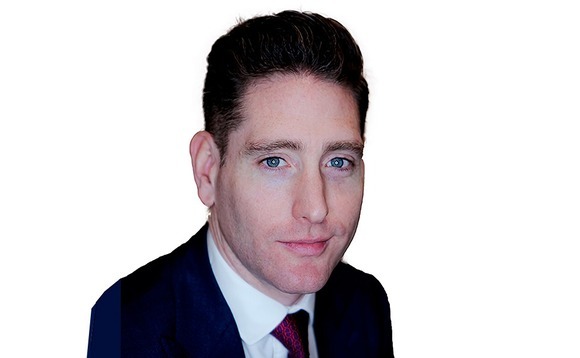
LP Profile: Stonehage Fleming anticipates largest ever PE programme in 2023

UK-headquartered multi-family office Stonehage Fleming is expecting to raise its largest ever pool of commitments for private equity fund investments in 2023 as its clients seek to up their exposure to the asset class, private capital director Mat Powley told Unquote.
The firm raised USD 120m for the seventh vintage of its annual private capital strategy in 2022, making this mandate its largest one to date. It is now aiming to raise a greater amount in 2023, Powley said.
"We keep the programme open from January to July each year and we're expecting a strong re-up rate," he said. "2023 could be a very strong vintage, much like 2009. It will be a good place to be if you have commitments and dry powder."
The strategy is likely to benefit from the fact that many family offices are keen to increase their exposure to private equity. "For the families who invest with us, it's about bringing them exposure to private markets over time, bringing in wealth for future generations," he said. "Private equity resonates with families in the current market and it has been the strongest performing asset class in the year to date."
Stonehage Fleming typically invests in six to eight funds per year, aiming to back managers who are typically oversubscribed or not easy to access without an existing relationship. It has global exposure, with around 60% in the US overall and the remainder in Western Europe and Asia.
Manager selection
Stonehage Fleming was formed via the merger of Fleming Family & Partners (the family office run by relatives of banker Robert Fleming and James Bond author Ian Fleming) and family office Stonehage in 2014. The firm offers a range of services including direct investments, wealth planning and insurance.
The firm's private capital strategy was launched in 2016, with the aim of carrying forward the positive aspects of the Fleming & Family Partners days, Powley told Unquote.
"We have been investing in this space since the early 2000s and one very positive element of this was our strong manager selection, but we shifted from raising a fund every three years to structuring an annual fund, meaning that our clients can gain exposure in each vintage year," he said. "As we bring on new clients, they can join the programme soon after they join, instead of waiting for the next fund to launch."
The firm currently has GBP 615m AUM in its private capital strategy. Its funds are domiciled in Jersey and have a 10-year lifecycle.
"We can dial up or down on particular investments based on their risk profile but our allocation is often very tight," Powley said.
The firm is well aware of the importance of this in the current macroeconomic environment. "I don't believe we are in the worst of it the geopolitical and macro challenges yet," Powley said, adding that even more thorough due diligence will be a key part of allowing the firm to take advantage of the right opportunities.
"We're not just backing managers who have done well in the past, we need to see how their current portfolio will stack up in the current market," he said, noting that not every cycle is the same. "Transaction volume is way down this year and financing is a major challenge, so we need to make sure that we are confident of the manager's track record and comfortable with other items such as fees, making sure that they are well-placed to weather the storm. We have patient capital and we want to be well-placed to deploy it in the next one to three years."
The right exposure
Stonehage Fleming generally backs lower mid-market buyout, growth equity and venture funds, with opportunistic secondaries exposure. According to Unquote Data, the firm has previously backed GPs including Bridgepoint, Hg and FPE Capital.
Its secondaries investors will be made against the backdrop of the denominator effect, which has seen large institutional investors in North America and Europe struggling with rigid allocation limits as the private equity exposure in their portfolio grows versus public markets. "That's why the secondary market could be interesting for us," Powley said, adding that the firm has an "opportunistic bucket of capital" for secondaries fund investments, aiming to build exposure to both GP-led deals and LP stakes.
In the current market, Stonehage Fleming will consider its venture investments carefully, investing in a "highly selective" manner to give its clients exposure to technology innovation in the long term. The firm took this approach in 2020 and 2021 in particular, according to Powley. "As investors, we get inundated with potential opportunities," he said. "Throughout 2021, the volume of inbound VC opportunities on directs and funds side was enormous and unsolicited – many of these managers had completely unrealised track records and only three or four years of experience, with extreme valuation inflation reflecting general exuberance in the market. We did not touch any of that."
Instead, its focus will be on the experience of any potential managers. "Where we do invest, we want to invest in managers who have navigated cycles, seen the good, the bad and the ugly, and generated value," Powley said. "We do expect a higher loss ratio in venture, but we need someone who can add value, not just benefit from free money and high multiples."
While being cautious about emerging managers, the firm does track such GPs, with the team travelling regularly to build new contacts. "We would not back a debut fund unless we knew the team and their track record, such as with a spin out," Powley said. "We are always looking for potential new relationships and we want to maintain our engagement so we can potentially invest with them one day."
ESG evolution
As Stonehage Fleming continues to build relationships with managers and build its portfolio, it is also dedicating time to developing its ESG framework. "ESG has always been an element of our diligence, but we have seen the market evolve quite dramatically over the years, with Europe a bit ahead of the US," Powley said. "It was not so long ago that some of the managers we speak to in the US said that they did not even consider ESG – but now, any manager who doesn't have it in their PPM won't raise a dollar."
In its own approach, the firm ensures that it avoids oil and gas exposure and has "sharpened up" its policy in line with the changing market, he added.
In order to back a manager with confidence, the firm requires conviction that the GP in question is taking ESG seriously, Powley said. This is especially true of the "S" and "G" elements, he added. "It's hard to claim zero negative environmental impact in the portfolio, but we can be sure of how our managers are running their portfolio companies, engaging with their communities, and running themselves from a governance perspective," he said. "We like to meet with the key decision-makers, as well as junior team members and investors who have known the manager for some time. We also get ESG reports from our managers, where we look at job creation, inclusion and green initiatives. Those reports are very helpful so we can keep tabs on the management and potentially challenge them."
Latest News
Stonehage Fleming raises USD 130m for largest fund to date, eyes 2024 programme
Sponsor acquired the public software group in July 2017 via the same-year vintage Partners Group Global Value 2017
Stonehage Fleming raises USD 130m for largest fund to date, eyes 2024 programme
Czech Republic-headquartered family office is targeting DACH and CEE region deals
Stonehage Fleming raises USD 130m for largest fund to date, eyes 2024 programme
Ex-Rocket Internet leader Bettina Curtze joins Swiss VC firm as partner and CFO
Stonehage Fleming raises USD 130m for largest fund to date, eyes 2024 programme
Estonia-registered VC could bolster LP base with fresh capital from funds-of-funds or pension funds









